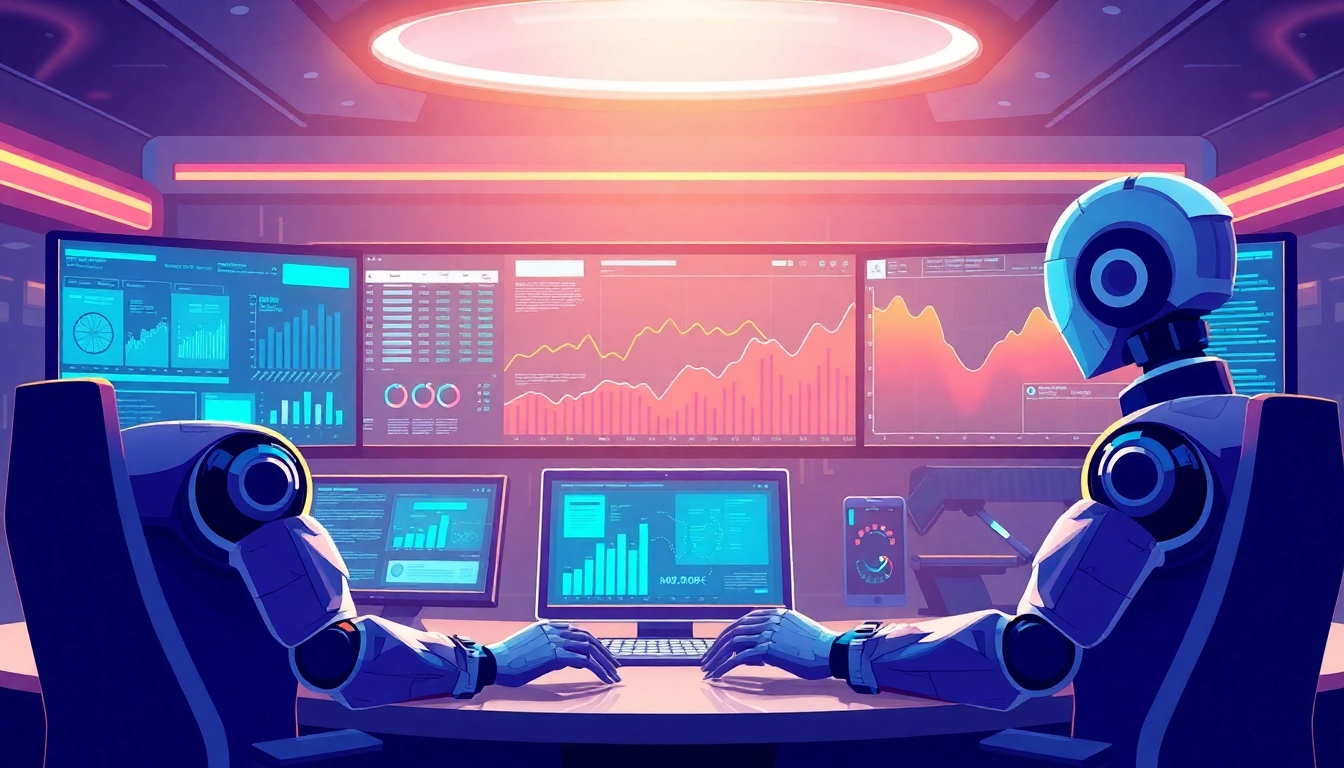Understanding AI Marketing Agents
Definition and Functionality
In today’s fast-paced digital landscape, businesses are increasingly turning to technology to streamline their processes and enhance their marketing strategies. One such technological advancement is the use of AI marketing agents. These are sophisticated software tools that utilize artificial intelligence to automate specific marketing tasks, enhancing efficiency and effectiveness. While they operate with a degree of autonomy, human oversight is still crucial to ensure alignment with broader marketing goals.
The primary function of AI marketing agents revolves around automating repetitive tasks, such as customer segmentation, personalized content delivery, and campaign optimization. By analyzing vast amounts of data, these agents can generate insights that inform marketing strategies, allowing businesses to connect with their target audience more effectively.
Types of AI Marketing Agents
AI marketing agents come in various forms, each designed to tackle different aspects of marketing operations. Below are the primary types:
- Chatbots: These AI-powered agents engage with customers in real-time, answering queries and providing support through conversational interfaces.
- Content Generators: They create tailored content based on audience preferences, leveraging natural language processing to generate articles, social media posts, and more.
- Predictive Analytics Tools: By sifting through historical data, these agents forecast future trends, helping marketers make data-driven decisions.
- Social Media Management Tools: These AI solutions automate posting schedules, analyze engagement data, and optimize content in real-time to enhance social media presence.
- Email Marketing Solutions: These tools personalize email campaigns based on user behavior and preferences, ensuring higher open rates and conversions.
Benefits of Using AI in Marketing
The integration of AI into marketing provides numerous benefits, driving not only efficiency but also improved customer experiences. Here are some of the most significant advantages:
- Enhanced Targeting: AI agents analyze consumer behavior, enabling marketers to tailor campaigns that resonate with specific audience segments.
- Increased Efficiency: By automating time-consuming tasks, marketing teams can focus on strategy and creativity, resulting in more innovative approaches.
- Data-Driven Decision Making: AI tools gather and analyze vast amounts of data, providing actionable insights that guide marketing strategies.
- Personalized Customer Experiences: AI agents can customize interactions at an individual level, enhancing customer satisfaction and loyalty.
- Cost Savings: Automated processes reduce the need for extensive human resources, leading to reduced operational costs.
Key Features of AI Marketing Agents
Automation Capabilities
One of the standout features of AI marketing agents is their automation capabilities. Automation not only saves time but also allows for consistent messaging and interactions. From automating email responses to scheduling social media posts, these agents handle tedious tasks with precision. This results in faster campaign rollouts, immediate responses to customer inquiries, and a more cohesive brand presence across all channels.
Data Analysis and Insights
AI marketing agents excel in data analysis, turning raw data into valuable insights. By employing machine learning algorithms, they can detect patterns and trends that may not be immediately apparent. This allows marketers to adjust their strategies in real-time, based on data-driven predictions. Furthermore, these insights can help in A/B testing campaigns, optimizing user experiences, and enhancing overall marketing ROI.
Integration with Existing Platforms
For any technology to be truly effective, it needs to integrate seamlessly with existing systems. AI marketing agents often come with the ability to connect with Customer Relationship Management (CRM) platforms, email marketing services, and social media management tools. This interconnectedness ensures a unified approach to marketing, facilitating smoother workflows and data sharing across departments.
How to Choose the Right AI Marketing Agent
Assessing Your Marketing Needs
The first step in selecting the right AI marketing agent is to assess your specific marketing needs. Consider what challenges you’re looking to address—whether it’s improving customer engagement, optimizing advertising spend, or increasing conversion rates. By clearly defining your objectives, you will be better positioned to choose an AI tool that meets those needs.
Comparing Features and Pricing
Not all AI marketing agents are created equal. It’s essential to compare features, capabilities, and pricing structures of different tools. Look for solutions that offer robust analytics, user-friendly interfaces, and strong support systems. Additionally, weigh the cost against the expected benefits to understand the potential ROI of the investment.
Trial and Implementation Strategies
Many AI marketing platforms offer trial periods, allowing you to test the software’s capabilities before making a full commitment. Utilize this opportunity to evaluate ease of use, compatibility with your existing systems, and the quality of customer support. Moreover, develop a clear implementation strategy that includes staff training and integration processes to ensure a smooth transition.
Case Studies of Successful AI Marketing Implementations
Brand A: Optimization Success
One notable case is that of Brand A, which implemented an AI-driven marketing tool to enhance its online ad campaigns. By utilizing predictive analytics, the brand was able to identify high-conversion audiences and adjust its budget allocation accordingly. Within six months, Brand A saw a 25% increase in sales, validating the effectiveness of AI in optimizing marketing spend.
Brand B: Personalization Progress
Brand B turned to AI marketing to improve customer personalization efforts. By leveraging a content generation tool, Brand B delivered tailored email campaigns based on individual customer behavior and preferences. The result was a 40% increase in email open rates and a 30% rise in click-through rates, demonstrating the power of AI in creating more engaging customer interactions.
Lessons Learned from Each Case
Both brands learned crucial lessons from their respective implementations. Key takeaways included the importance of continuous monitoring and adjustment of AI strategies to respond to changing market dynamics. Additionally, integrating AI tools with traditional marketing approaches often yielded the best results, balancing automation with the human touch that consumers still value.
Future Trends in AI Marketing Agents
Emerging Technologies to Watch
As technology continues to evolve, so will the capabilities of AI marketing agents. Future trends to watch include advancements in natural language processing, which will enhance the ability of chatbots to understand and respond to complex queries. Moreover, the integration of augmented reality (AR) and virtual reality (VR) in marketing may change how brands interact with consumers, providing immersive experiences that AI agents can facilitate.
Predictions for Market Evolution
Looking ahead, experts predict that the AI marketing landscape will become even more competitive. Companies leveraging AI will likely outpace those that do not, as data-driven decision-making and automation become the norm. Additionally, the rise of ethical AI practices will shape how companies implement AI technologies, requiring transparency and accountability in data handling.
How Businesses Can Prepare
To prepare for the future of AI marketing, businesses should focus on investing in technology and training. Equipping teams with the necessary skills to harness AI tools effectively will be vital. Furthermore, adopting a flexible marketing strategy that can adapt to new technologies will ensure that businesses remain competitive in a rapidly changing landscape.



